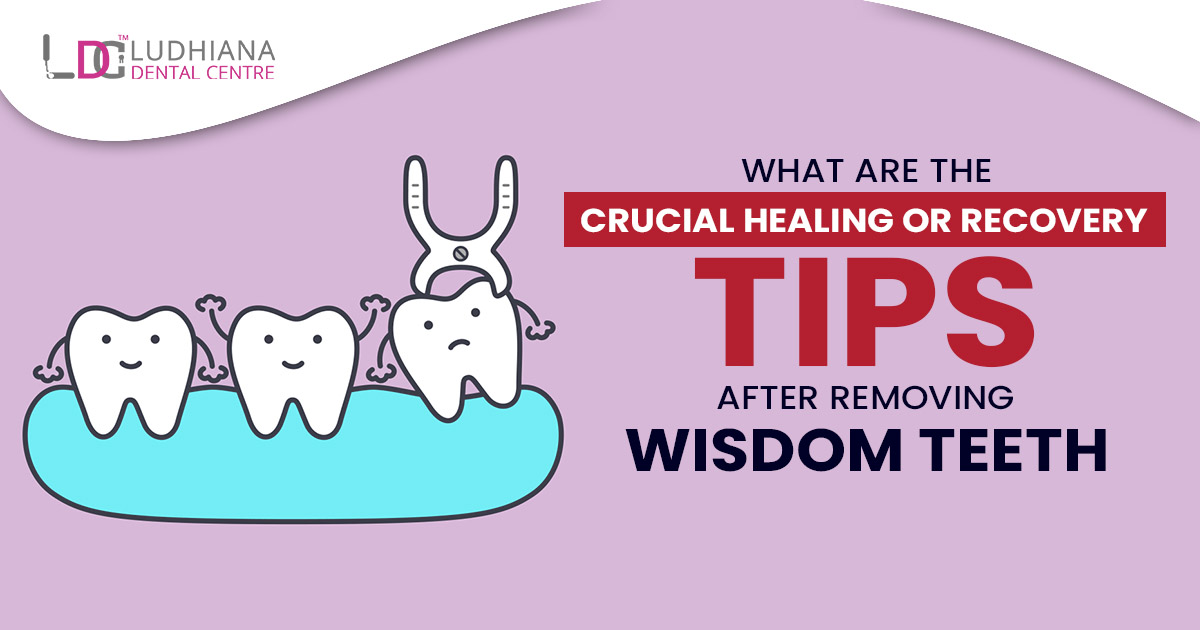Yes, the cleverest choice you might make is to extract these third molars as they continue to impact your oral safety. For this, you need to visit the best dental clinic in Ludhiana and get the right treatment on time. Your specialist will also suggest some tips to heal properly after the removal process.
How essential aftercare is after removing the wisdom teeth?
The Academy of General Dentistry (AGD) estimates that dentists have routinely removed wisdom teeth for millions of Americans every 12 months. Apart from some temporary complications such as swelling, blood, discomfort, and bruising, the majority of patients recover rapidly after surgery. However, the driest preventable surgical complication is a dry socket.
A dry socket is produced by the dislodging of or dissolving newly formed blood clots inside the socket, which exposes bone and nerve endings. In addition to intense discomfort, dry socket signs include-:
- Weak respiration
- A foul taste in the mouth
- Noticeable fractures in the body
- Enlarged lymph nodes in the neck
- Low-grade fever.
Below are the postextraction treatment guidelines to avoid possible complications following the removal of wisdom teeth:
Bleeding
Expect any bleeding for 30 minutes following an operation, so hold a gauze pad around the extraction spot. Specialists suggest to bite down on a gauze pad or place your fingers consistently over the pad for 30 minutes before removal for heavy bleeding. Another option is to use a damp tea bag for the same period. The tea’s tannic acid connects the arteries to support the blood clot.
Swelling
Using ice packs intermittently to minimize bruising, injuries, or pain for up to two days. You may be suggested by your dentist to use warm and moist compresses instead of ice if your tooth is infected before removal.
Nutrition
Drink lots of clean or cool fluids during bleeding to preserve hydration. Eat daily meals, however, start with liquids and soft foods. The safest options, including vegetables, meats, and fruit liquefied by mixers, are eggs, pudding, pulp, gelatins, and cooked cereals. The dentists advise against eating sugar and cooking items such as pasta, popcorn, peanuts, and spaghetti, which will trap debris behind the body in order to prevent dislocating the blood clot.
Medications
Taking medication and antibiotics for the infection administered precisely according to the dentist ‘s advice. And remember, you’ll be asked not to run or operate machinery and to keep alcoholic beverages if you take strong narcotic pain medication.
When to consult a dentist following the procedure?
In case, you are suffering from severe pain and swelling every day; but, if you have any, contact your dentist:
- Swelling is getting worse rather than stronger.
- Excessive bleeding, which does not decrease strain.
- Three to four days after surgery, intense, stirring discomfort.
- A strong, constant fever.

